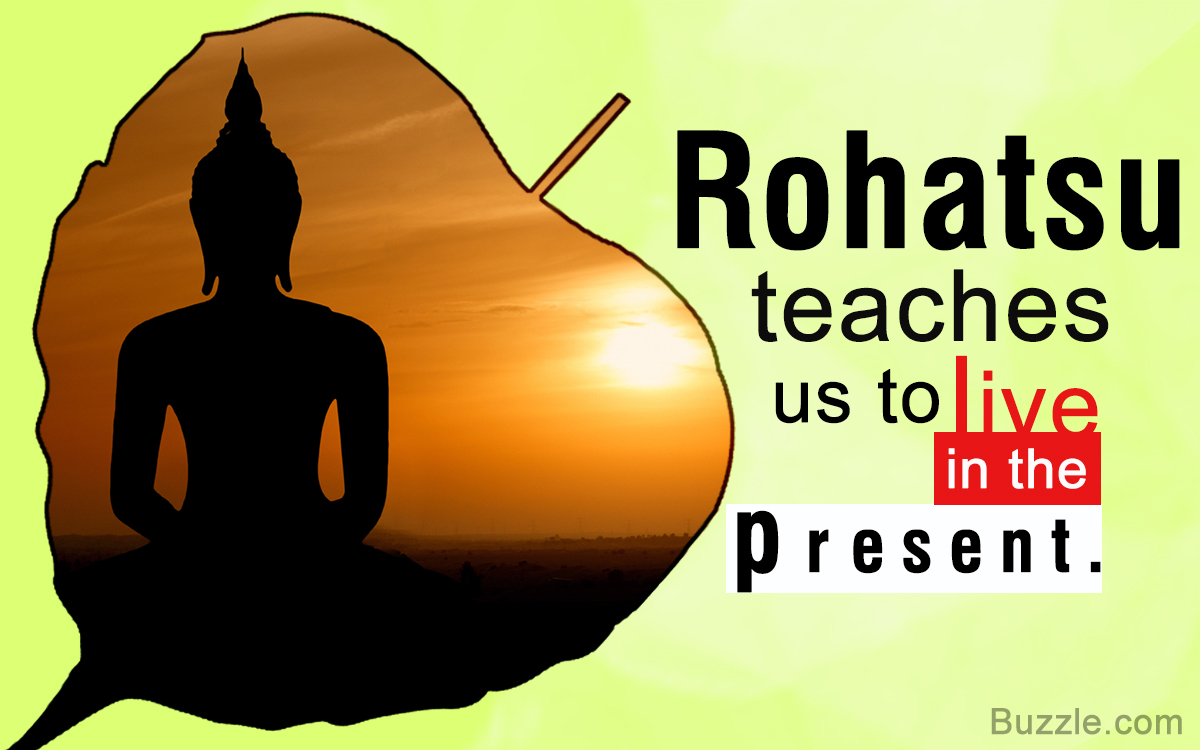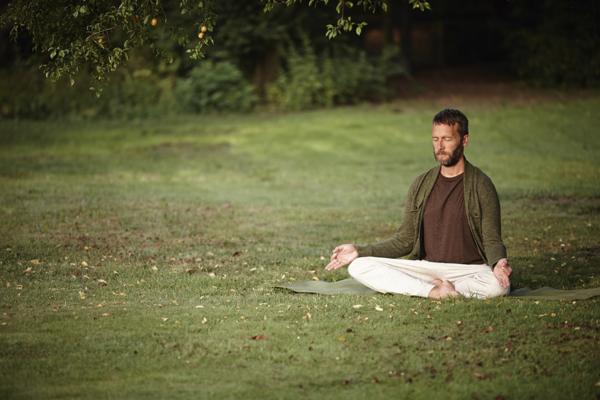
The Zen Buddhist holiday of Rohatsu provides a wonderful road map for learning to live in the present. But there’s no need to wait until December to practice living in the moment. One can practice it from the very moment one decides.
Buddha spent many years adhering to rigorous specific practices of daily life in an effort to realize enlightenment. Finally he vowed to sit under the Bodhi tree, until he attained enlightenment. So as he sat, for seven days and seven nights, he slowly began to increase his realizations about life. As the eighth day dawned, he looked upward to see the brightest of the morning stars, and he instantly recognized that all living things are interconnected and he achieved enlightenment.
Holiday of Rohatsu
Zen practitioners around the world honor Buddha’s experience by observing the Buddhist holiday of Rohatsu during the first eight days of December. It is observed by attending a week-long intensive session that emulates Buddha’s experiences beneath the Bodhi tree. It provides Zen practitioners a focus to achieve new levels of personal realization. The Rohatsu sessions can sometimes be very rigorous and specific, helping to lead people to attain the most exalted state of enlightenment.
On the morning of the final day of Rohatsu, Zen monks as well as laymen find themselves longing to experience the same transformation of realization that Buddha felt during his session years ago. But the danger in this anticipation is that, Rohatsu may cause followers to focus too strongly on the final day, with their attention fixed on the moment when pure enlightenment will be reached. Hence, the desire for a particular outcome obscures any realizations that may come along on the way.
The retreat is a perfect opportunity for learning to live in the present, to gently make our way back to realizing that all people have the potential to awaken their Buddha-like nature. It gives us a way to look deeply inwards, not just with our focus planted on the final outcome. It helps us celebrate the same liberation experienced by Buddha, without splitting our attention between the moments along the way and the desire to achieve a perfect enlightenment at the end of the journey.
How to Practice it in Daily Life?
If you cannot attend Rohatsu session, or you want to experience mindfulness at any time of the year, there are plenty of ways to practice. Because its object is to turn your focus inward, this can be done at any place and time, wherever you can settle down and relax, and anchor yourself and your thoughts. One of the most simple and time-tested ways to practice mindfulness mediation is by simply following your breathing, in and out.
Do not manipulate or try to control your breathing; pay attention to it gently and follow its natural rhythm. At first you may find your mind wandering, but simply smile at yourself and return to paying attention to your breathing. It is important never to berate yourself if your mind wanders during meditation, and you need not feel like a failure if the meditation does not last long. Mindfulness does not require perfection; every time you are able to bring your attention to the forefront to focus on the moment at hand and pay attention to your breathing, you experience a wonderful moment of pure mindfulness.
When you sit down to have a cup of coffee in the morning, take a few deep breaths, sip your coffee steadily and mindfully, and pay attention to your breathing between each sip. Let your body relax, and enjoy the present moment. You can also practice mindfulness each night as you lie down to go to sleep, or as you wash dishes, or as you take a walk, or as you lie in the bathtub. You can even practice it as you eat, taking time to savor each and every bite, to experience each taste in the moment.
All these practices begin with conscious breathing. Whichever way you choose to practice, remember that your primary focus is to be aware of the day, stay calm, and focus on your breathing, without letting distractions affect you experiencing the moment. These moments can serve to be a wonderful respite ― a port in the storm of daily life ― to bring you into a harmonious state with the here and now.




